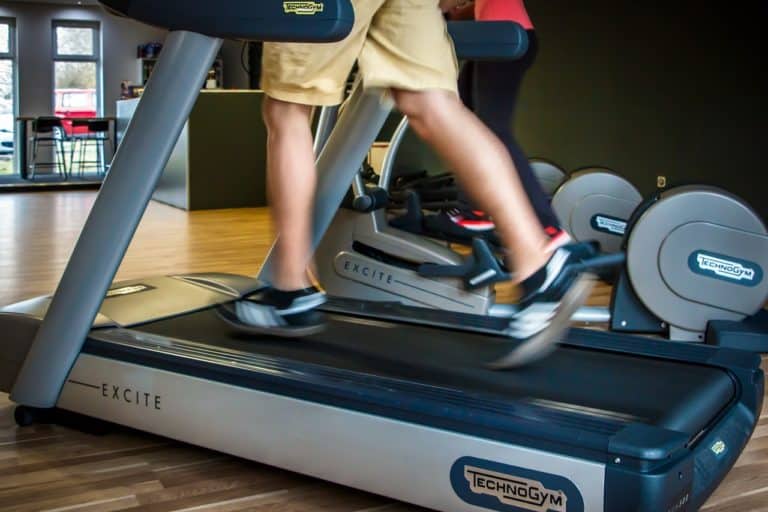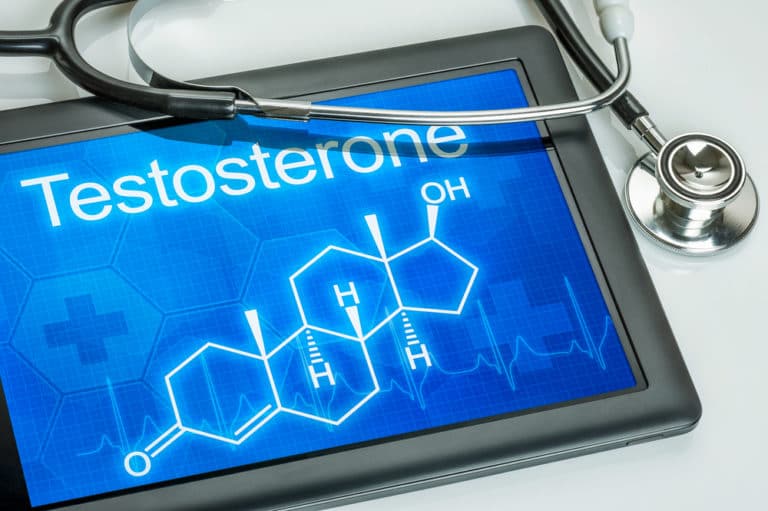For men who have symptoms of low testosterone and/or who have had their testosterone levels measured and the number was low, there are some effective and safe ways to increase low testosterone (T). Some adjustments to your lifestyle may be all you need to begin sending your T levels on an upward swing.
With that in mind, here are 5 ways to increase low T without testosterone replacement therapy or infomercial magic elixirs.
Get more sleep
While you’re asleep, many bodily processes are hard at work, and production of testosterone is one of them. In fact, your body makes the most testosterone while you sleep. However, if you fail to get enough sleep–at least 6 hours and preferably 8–your testosterone production will suffer. Therefore, inadequate sleep not only affects your concentration, mood, and ability to function well–it also takes a toll on your T levels.
Inadequate sleep is a significant problem. According to the National Center for Sleep Disorders Research at the National Institutes of Health, about 30 to 40 percent of adults say they experience insomnia within a given year, and up to 15 percent suffer from chronic insomnia. If you are having trouble getting restful and/or enough sleep, explore some tips to improve sleep and boost your T levels.
Reduce stress
The negative effects of stress on the body and mind are far-reaching, and that includes testosterone levels. When you experience stress, your body releases the stress hormones cortisol and adrenaline, which in turn interfere with your body’s sex hormone levels, and that includes reducing testosterone levels. For example, a study of men ages 30 to 55 looked at the impact of psychological stress on testosterone levels. Men identified as experiencing high psychological stress had significantly lower levels of testosterone than did their peers who had less stress.
To fight the impact of stress in your life and on your testosterone levels, take time each day to practice stress management. Possible ways to handle stress include engaging in a new hobby, being creative (e.g., painting, sculpture, dance, music), meditation, yoga, tai chi, exercise–whatever activity allows you to shed the worries of the day.
Lose body fat
Men who shed excess body fat can boost their testosterone levels, look better, and improve their overall health. How’s that for a three-fisted benefit? The reason losing body fat enhances testosterone levels is that fat cells convert testosterone and androstenedione (a precursor of testosterone) into estrogen (specifically, estradiol), a female hormone.
In fact, men who have an imbalance of estrogen to testosterone can develop estrogen dominance and experience symptoms similar to those women face in menopause, such as weight gain and enlarged breasts. When men lose excess fat, they not only lower their estrogen level but also put the brakes on their loss of testosterone. If you are carrying excess baggage, it’s time to lose the fat, and in the process you will boost your testosterone.
Have more sex
Here’s a treatment option that sure beats swallowing a pill. Studies show that engaging in sexual activity can raise testosterone levels. One study, for example, evaluated couples and found that “testosterone levels increased on nights after sexual activity and did not on nights where there was no intercourse.” The Archives of Sexual Behavior published the results of a two-month study of 20 men and found that “higher levels of testosterone are associated with periods of sexual activity.”
Having more sex can do more than just increase testosterone levels. Men who have regular sexual activity also can promote healthy erectile function and enhance the integrity of penile tissue. In addition, more sexual activity may also reduce the risk of prostate cancer.
Limit alcohol
You may think you’re sexier after you’ve had a few drinks, but alcohol takes a toll on T levels. In a 2011 study published in The Aging Male, researchers reported that alcohol use was second only to obesity as a possible contributing cause of testosterone deficiency in a survey of more than 10,000 men. A study conducted decades earlier and published in the New England Journal of Medicine noted that alcohol use increases the metabolism and elimination of testosterone from the bloodstream and also reduces the production rate of testosterone.
So if you want to keep your T up, put the alcoholic drinks down. The maximum number of drinks for men is two per day, but in this case, less is better. One drink is defined as 5 ounces of wine (12% alcohol), 12 ounces of beer (5% alcohol), or 1.5 ounces of liquor (40% alcohol).
Read more in our Low T Health Center.
References
Dabbs JM, Mohammed S. Male and female salivary testosterone concentrations before and after sexual activity. Physiology and Behavior 1992 Jul; 52(1): 195-97
Francis KT. The relationship between high and low trait psychological stress, serum testosterone, and serum cortisol. Experientia 1981 Dec 15; 37(12): 1296-97
Gordon GG et al. Effect of alcohol (ethanol) administration on sex-hormone metabolism in normal men. New England Journal of Medicine 1976; 295:793-97
Kraemer HC et al. Orgasmic frequency and plasma testosterone levels in normal human males. Archives of Sexual Behavior 1976 Mar; 5(2): 125-32
Trinick TR et al. International web survey shows high prevalence of symptomatic testosterone deficiency in men. Aging Male 2011 Mar; 14(1): 10-15






